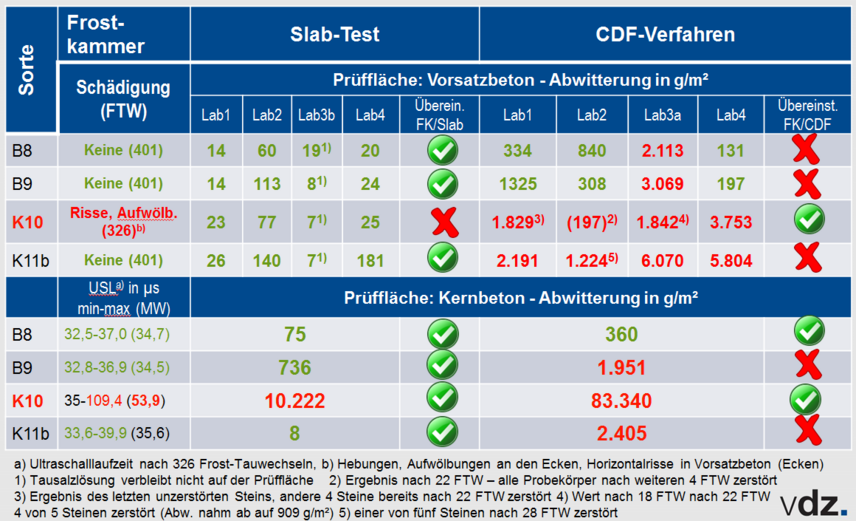Since February 2005, the frost de-icer resistance for concrete paving must be proven with the modified slab test. Despite the discrepancy observed between the test results and the practical performance of stones laid, many customers prefer the CDF procedure.
The aim of this research project was to create a secured assessment background for testing the frost de-icer resistance of earth-moist produced concrete paving stones. The proposals could possibly be developed for testing in realistic conditions. In addition, environmental conditions and joint condition changes of laid concrete paving stones were recorded (monitoring) and implemented in an accelerated laboratory simulation with concrete paving stone surfaces (frost chamber). The correlation between weathering behaviour of the concrete paving stones in the laboratory testing procedure and weathering behaviour of the concrete paving stone surfaces in the frost chamber was investigated. Furthermore, the influence of paste content in the core concrete on the bond strength between face and core concrete was examined to research the causes for detachment occurrences in more depth.
![[Translate to English:] Übertragbarkeit von Ergebnissen aus Laborprüfverfahren zur Bestimmung des Frost-Tausalz-Widerstandes von vorgefertigten Straßenbauerzeugnissen auf Praxisverhältnisse](/fileadmin/_processed_/b/c/csm_Frost-Tausalz-akt2_13c0f78dcf.jpg)



